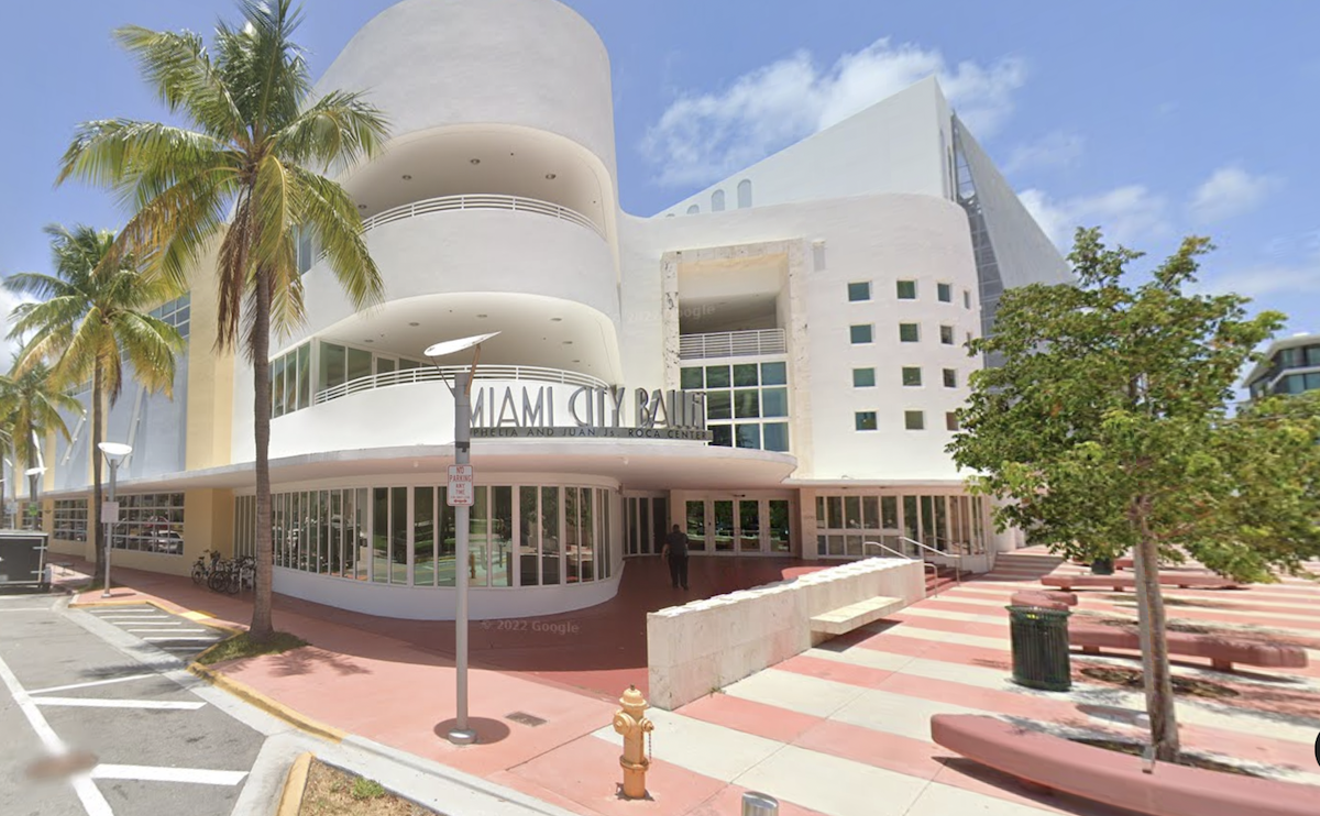At the December 17 press conference to announce the stadium agreement, Alex Penelas, Joe Carollo, and state Sen. Mario Diaz-Balart didn't address the sensitive issue of public input, and they didn't dwell on site selection. Instead they sought to convey a straightforward message: This is a done deal. That, of course, is what you would expect from a cabal of crafty insiders whose goal is to overwhelm potential opponents with a sense of momentum and inevitability. But as the hype subsided, the brazenly anti-democratic nature of this scheme revealed itself. First the matter of stadium location.
Make no mistake about it, under the terms of the preliminary contract signed by Penelas and Henry there is only one viable site: Bicentennial Park. Why? Because nowhere in the contract are there provisions for the purchase of privately owned property -- no mention of land costs or funding sources or condemnation under eminent domain. Rather the contract implicitly assumes that land for the stadium will be made available free of charge: "The county would work with the city to secure the necessary land for the project. The team will cooperate with the county and the city in such efforts."
Given that two of the three possible sites -- the north bank of the Miami River and the area around the current Miami Arena -- are entirely or partially owned by private individuals and are worth tens of millions of dollars, publicly owned Bicentennial Park becomes the target by default. No one should be surprised to see this kind of underhanded manipulation. After all, lobbyists and county bureaucrats have had years of experience rigging bid qualifications on lucrative contracts to reduce or eliminate competition.
Two more components of the contract provide evidence that the fix is in. Diaz-Balart proposes to have the state kick back to Henry some $122 million in anticipated sales-tax receipts, money that is essential to the success of the proposal. This he would accomplish by amending the state's brownfields-development act, which is designed to provide incentives for cleaning up and developing contaminated land. Which of the three proposed sites is known to be contaminated? Bicentennial Park.
Finally the contract explicitly mandates a "fast-track planning and construction schedule" in order to have a stadium ready by spring 2004. The only site capable of meeting that deadline is Bicentennial Park. The other two would require too much time for land acquisition and infrastructure improvements.
It doesn't take a cryptographer to decipher the contract when it comes to site location. Henry and his coconspirators are talking about a 280-foot-tall behemoth by the bay; they just aren't saying it out loud.
They also aren't interested in having any troublemaking tree-huggers or financially conservative party poopers muck up the works, as surely would have happened had everyone known what was being contemplated. Hence the secrecy. Yet less than a year ago Henry portrayed himself as a true populist. He assured us he was prepared to have the people vote yea or nay on his plans for raising money to build a stadium.
Behind the scenes, however, he was operating as sneakily as ever. This past February I described a presentation Henry's advisors organized for a select group of movers and shakers. I wrote then: "Evasive answers are consistent with the unspoken message conveyed by secretive meetings, awkward attempts to ban the press, and John Henry's dreadful decision to rely on political lobbyists and media spin-doctors. The message is that this deal will be accomplished the way deals have always been accomplished in Miami: behind closed doors. All the talk about inclusiveness and community involvement is just a kind of cynical doublespeak designed to disarm and obfuscate."
And so the cynicism continues, aided and abetted by the hypocritical Alex Penelas, who opposes using public money to build sports palaces for rich guys, but only when it's politically expedient, never on principle. In that sense not much has changed since the citizens of Miami-Dade County were first held hostage by Wayne Huizenga and Micky Arison. But much has changed in other ways.
Today we have hundreds of committed individuals who have involved themselves with organizations devoted to preserving Bicentennial Park, the last remaining bayside land owned by the public, and to advancing the cause of comprehensive planning for downtown Miami. The city's Waterfront Advisory Board and recently created Parks Advisory Board have been energized by the possibilities for rejuvenating those lands. The local chapter of the American Institute of Architects is moving ahead with an ambitious project to rethink overall planning for the downtown area. Groups of professors and students at the University of Miami and Florida International University are pursuing similar design projects. The Urban Environment League is active on many fronts. UEL president Greg Bush says he's fielded dozens of calls from irate citizens in the wake of the Marlins' announcement. The group is in the process of developing a comprehensive response to the stadium proposal and seeks volunteers (305-579-9133).
Miami Commissioner Johnny Winton, whose district includes Bicentennial Park, earlier this year won commission support for creation of the Bicentennial Park-Waterfront Renewal Committee, which is undertaking a thorough exploration of possibilities for the park and surrounding areas. In fact city commissioners voted unanimously to set aside $200,000 to fund a charrette addressing that subject in early February. For more information contact Bob Weinreb in Winton's office (305-250-5333).
We also now have something called the Miami-Dade County Community Improvement Trust, a group created earlier this year by the state legislature and charged with investigating options for financing and constructing a baseball stadium for the Florida Marlins. Their meetings are open to all, and they enthusiastically welcome ideas from the general public. The trust represents exactly the sort of democratic process that builds confidence in government by its transparency and inclusiveness.
Which is exactly why Alex Penelas, Joe Carollo, Mario Diaz-Balart, and John Henry felt the need to drive a stake through its heart before it could do them any harm.










